INTRODUCTION
Most of the rivers in the State are formed as a result of a culmination of different streams originating from the Western Ghats. These streams including that of contribution from various water bodies highly influence the water availability in terms of both quality and quantity for the State. These streams when it reaches places with high population density results in pollution. For a river to sustain its flow unpolluted, it is important that its tributaries and streams that join it shall remain pollutant-free. Though the water availability in the State is mainly dependent on rainfall, various pollutants entering into water bodies and in nearby places makes the issue more complex. Pollution in ponds/tanks mainly occurs due to stagnant water while in the case of rivers, it is due to lean flow, especially during summer.
KERI has taken up a study for the abatement of pollution of Kechery River in association with SCMS School of Engineering and Technology.Kecheri River also known as Wadakkancheripuzha is a west flowing river originating from Machad hills in Thrissur District. The river is 51 Kms in length and empties in to Arabian sea at Chettuva lake. The stretch of Kecheri river from Puliyannur to Kecheri bridge is taken for pollution abatement. The length of this stretch is 8.5 Kms and the main river course.
CAUSES OF POLLUTION
Apart from the fluctuation in water availability during the lean season, pollution is caused by various other factors. Urbanisation, change in land use pattern, use of excess chemical fertilizers, change in lifestyle, unscientific waste disposal system including that of letting out sewerage to water bodies are some of the main reasons to be highlighted with. The pollutants mostly include water from households and shops. Various study reports suggest that a large number of wastes are let out to rivers from hotels, markets, slaughterhouses, colonies, workshops etc. Also, along the curves in the rivers, meandering has resulted in the formation of small island portion which obstructs the flushing out of pollutants something even resulting in a change in the river course. Encroachments and filling-up of rivers for commercial purposes have also resulted in pollution. Hence, there is an urgent need to regulate and control the above-said actions which significantly contribute to pollution of water bodies.
EXPECTED METHODOLOGY
The following may be considered while formulating action plans and preparing DPRs:
- Identification of the problem (Define)
- Field survey to understand in-situ conditions which shall include transect walks for all the streams/tributaries joining the river
- Identification of polluted stretches and points of polluting and marking them with the help of public/LSGIs.
- Quantify and estimate the attributes (Measure & Analyse)
- Water quality assessment of the river particularly at the entry/exit of each LSG.
- Setting up of appropriate treatment systems in the catchment and effective utilization of treated sewage.
- Restoration, Rejuvenation and Renovation ( 3 R )of traditional water bodies.
- Way forward (Improve & Control)
- Reinstating the linkage of water bodies with the ecosystems.
- Sourcing of Resources for implementing projects and Implementation of the projects.
- On the basis of survey and cause analysis suggesting a cost-effective optimal solution for abating pollution.
- Preparation of River Action Plan and Detailed Project Report (DPRs) by Engineering colleges under the guidance of KIIDC, KERI and Irrigation Department.
- Presentation of the findings and DPRs before the Higher Education Department and Environment Department.
For the physical implementation of projects in this sector, upcoming entrepreneurs should be exposed to the sector. WRD, Kerala is duty-bound to welcome such talents and create a conducive atmosphere for them to sustain in the environment. The sector shall open up immense possibilities in this sector and shall be a new vertical of opportunities not only in Kerala but the nation as a whole. Startup firms can make use of this opportunity.
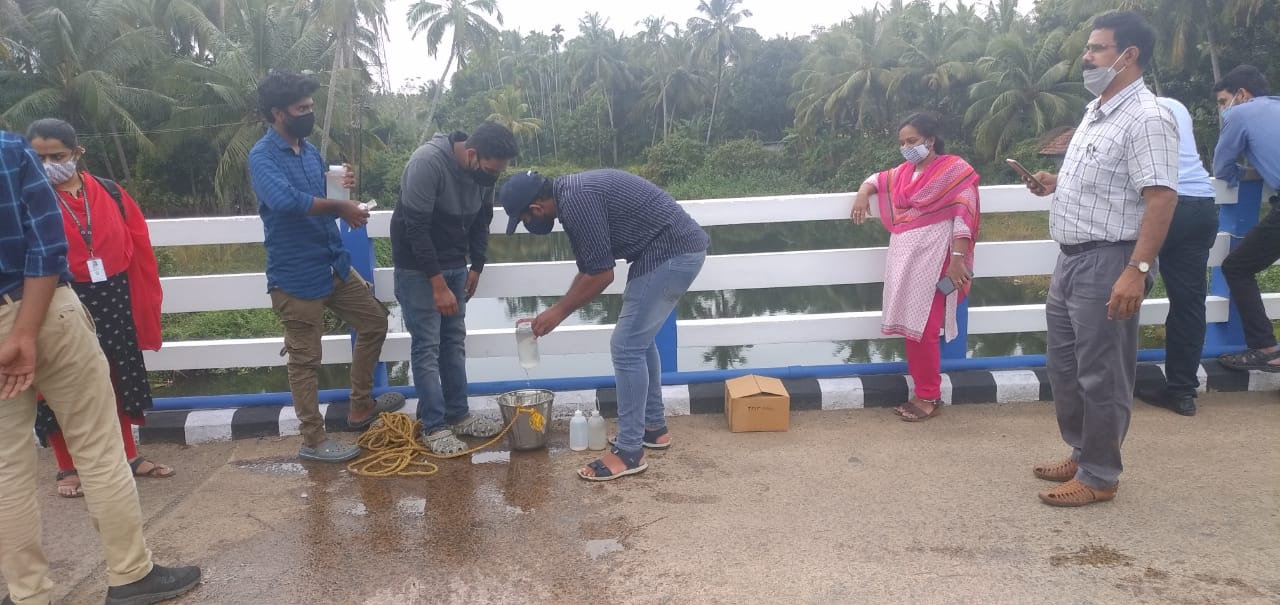
Water Sample Collection from Kechery River on 12.01.2021
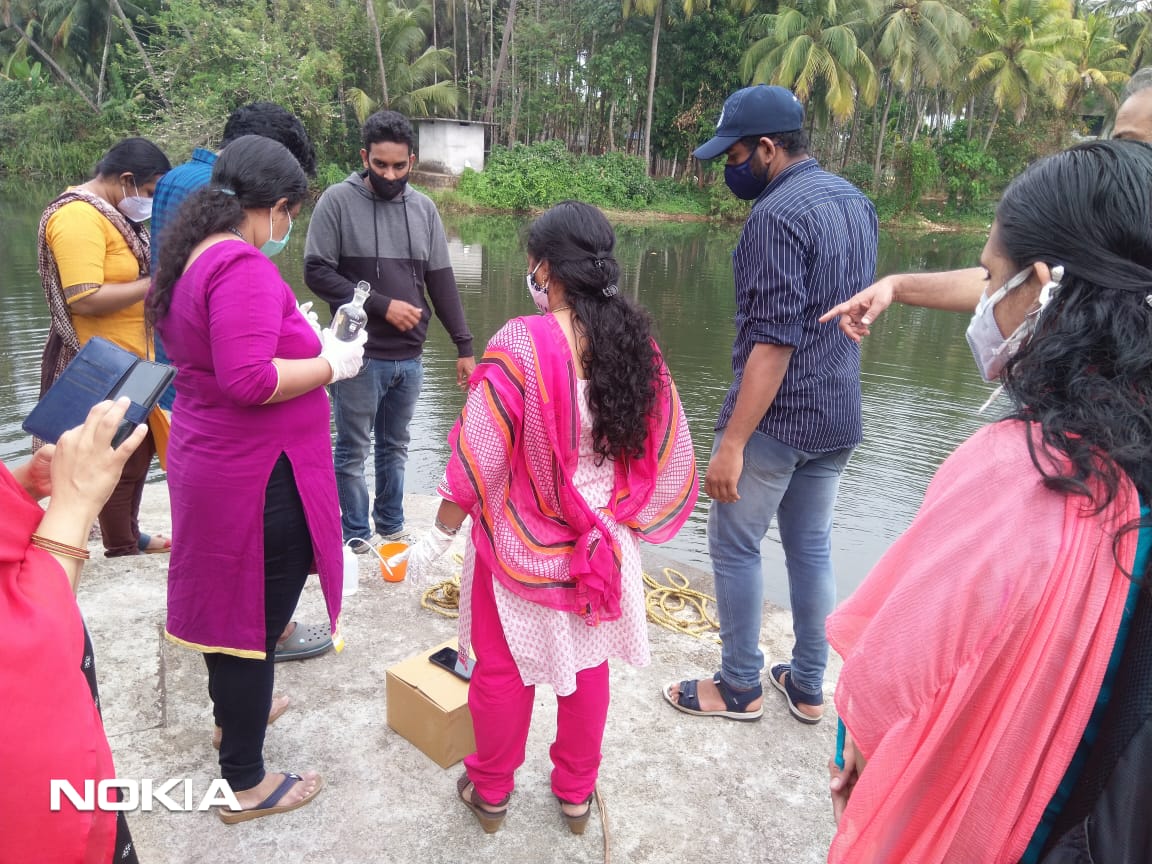
Sample Collection at Eyyal KWA Pump House near Koombazha Bridge
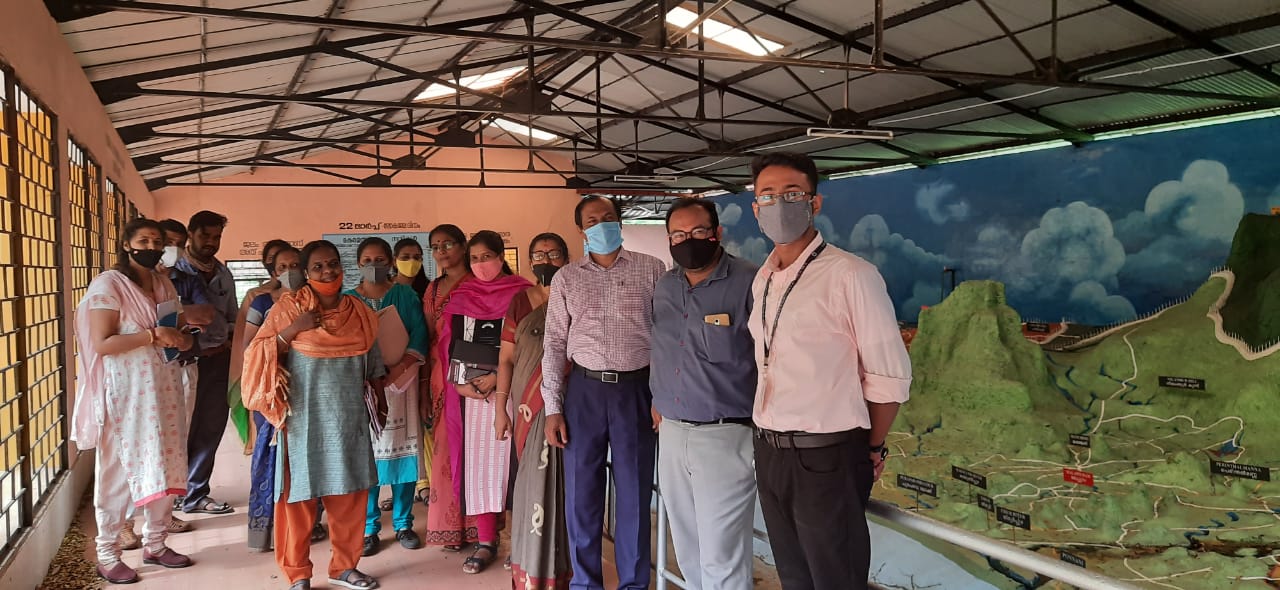
Meeting with SCMS officials at KERI campus on 08.01.2021
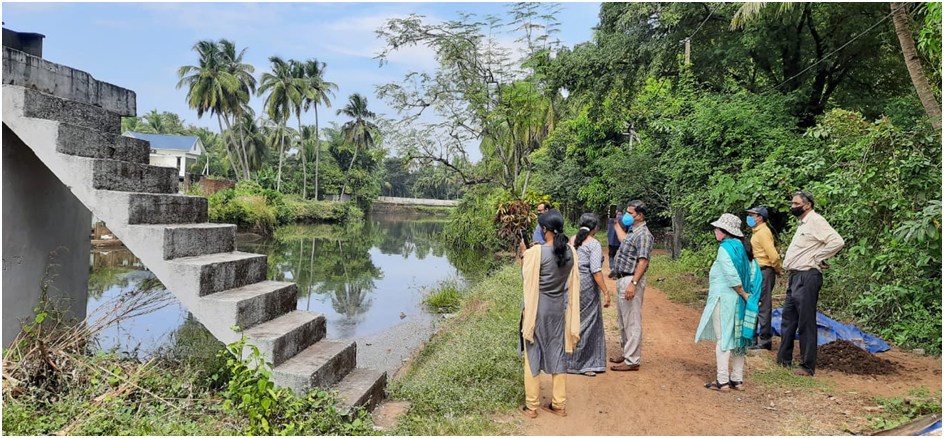
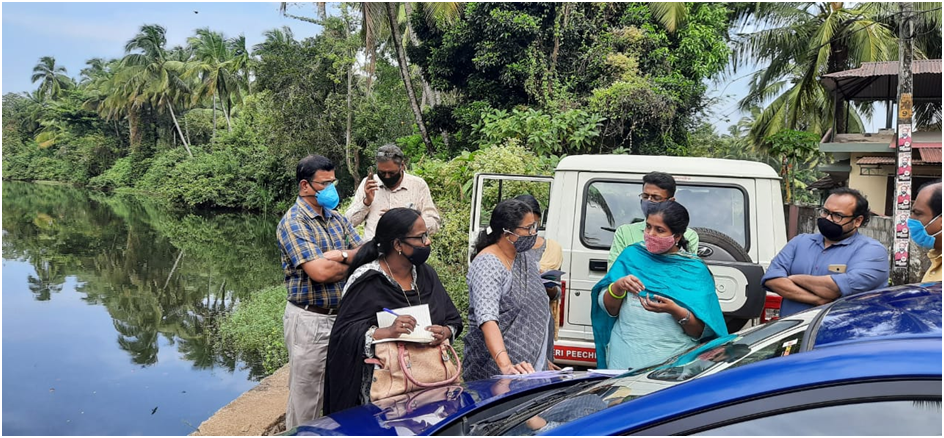
Site visit to Kechery River on 18.12.2020